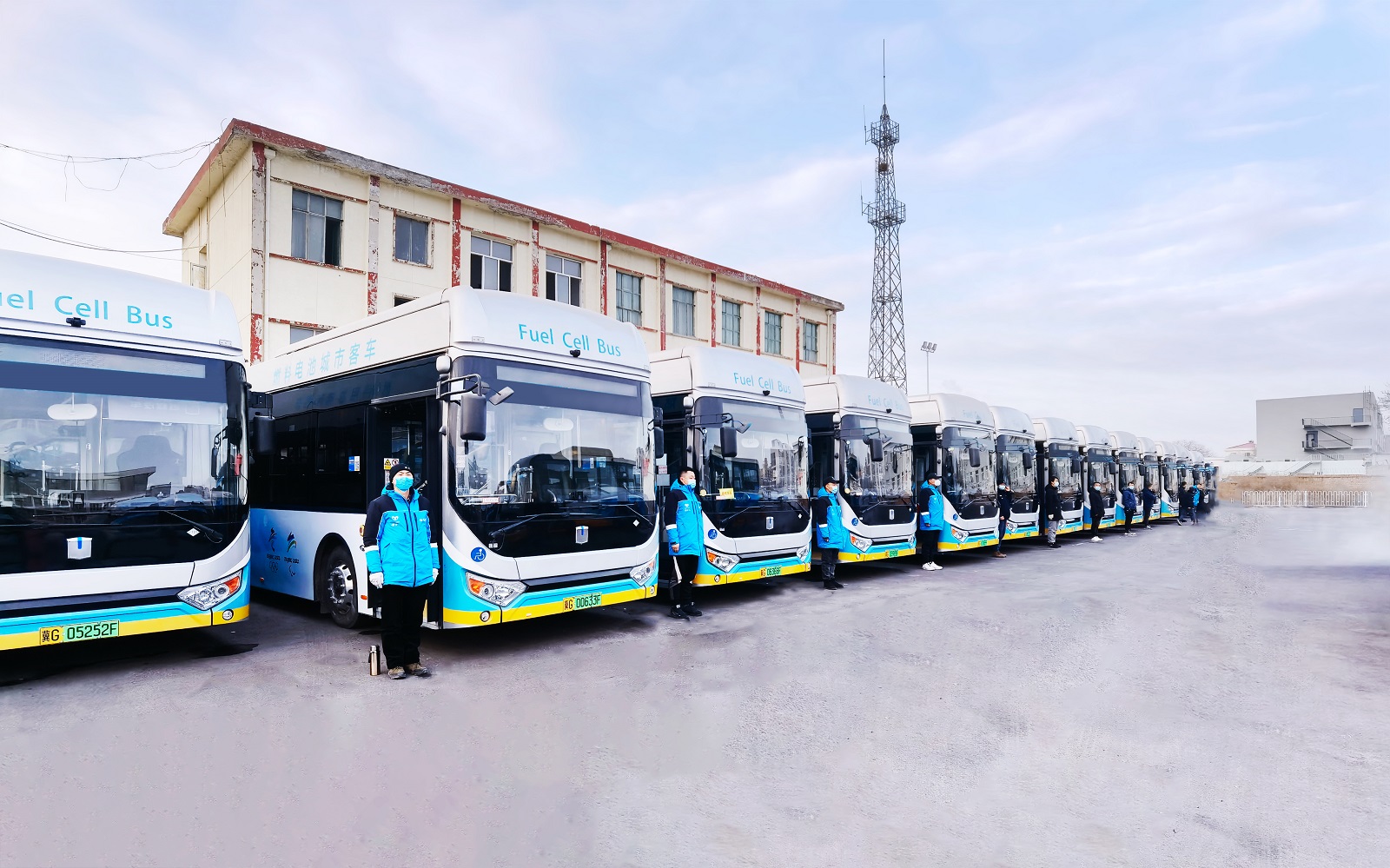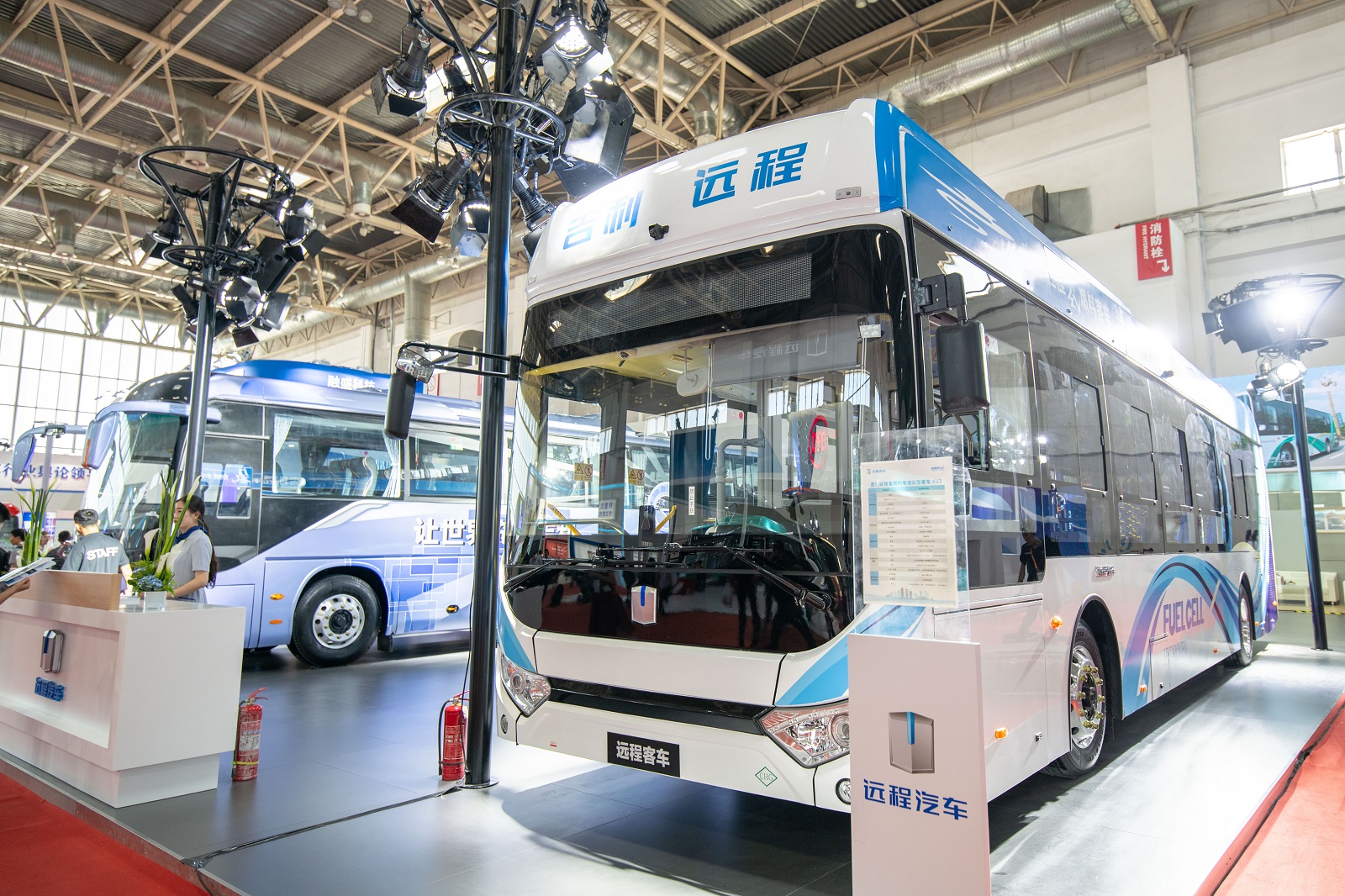In one frigid snow-covered northern city which suddenly had the world’s attention for the Winter Games, Geely’s newest and greenest buses were on hand to provide Olympians, media, and visitors with zero-emission safe, comfortable, and reliable mobility.
With the world’s eyes on the 2022 Beijing Winter Games, keen observers may have noticed a fleet of Geely’s newest and greenest buses. To help ferry Olympic competitors and visitors to the Games in Zhangjiakou where many of the Winter skiing events were held and also where Geely has a major presence with its Lynk & Co production plant, a fleet of 80 Farizon C12F hydrogen fuel cell buses were put into operation.
In the frigid northern city known for its ski resorts with snow covered slopes for nearly half the year, hydrogen fuel cell buses from Geely’s commercial vehicle brand Farizon provided transportation for competitors, media, and visitors over the two weeks of Winter Games. At the conclusion of the Games, the zero-emission buses had traveled nearly 400,000km and ferried almost half a million passengers with no issues. This success has shown the world the capability, safety, and suitability of hydrogen fuel cell vehicles in low temperature environments. Compared to battery electric vehicles which suffer from up to 50% reduction in range and charging speed as temperatures dip, hydrogen fuel cell vehicles suffer from almost no reduction in range or refueling time.
Introduced in 2019, the Farizon C12F hydrogen fuel cell bus has a range of 500km on a full tank, can operate at peak performance in temperatures between -35C to 42C, and takes only 5 minutes to refuel. With the right infrastructure, hydrogen fuel cell vehicles can become a promising solution in helping the world achieve carbon neutrality and greener mobility. Geely’s fleet of hydrogen fuel cell buses will stay in Zhangjiakou after the Winter Games to support the coming Paralympic Games and provide zero-emission public transportation for local residents in the future.
The success of hydrogen fuel cell buses at the Winter Games has brought on a spur of interest from cities around China in using the zero-emission vehicles for their public transportation needs: six cities have already ordered Farizon C12F hydrogen fuel cell buses including Wuhan, Ma’anshan, Zibo, Huzhou, Jiaxing, and Zhangjiakou.
In addition to developing fuel cell commercial vehicles to help the world achieve carbon neutrality and greener mobility, Geely is also developing battery electric vehicles, high-efficiency hybrids, ranged extended electric mobility, battery swapping technologies, and green methanol fuel. The path to net zero carbon comes in many forms and consideration must be taken to meet the needs of different environments and users such as the extreme cold conditions in northern urban cities. For Zhangjiakou and many other cities with the proper infrastructure, Geely’s hydrogen fuel cell buses are an optimal choice for zero-emission public transport.




